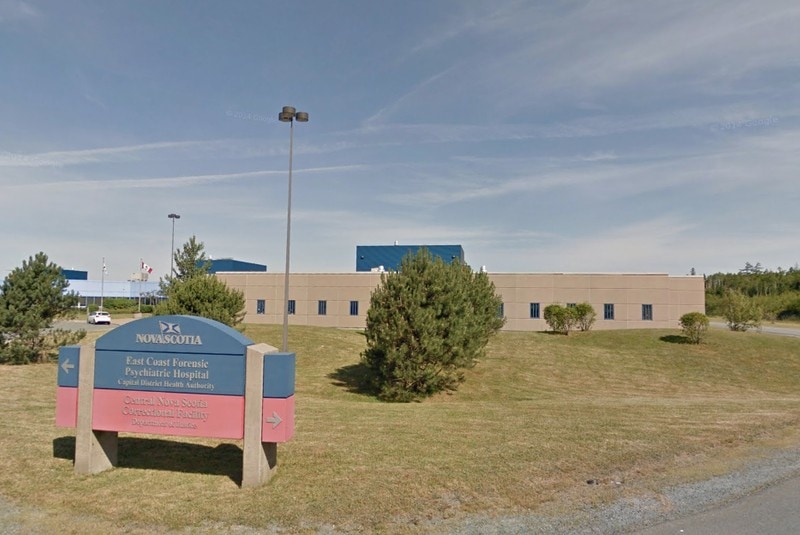
KJIPUKTUK (Halifax) – There comes a time when people who’ve been institutionalized are ready to re-enter to the community. They’ve reached readiness for discharge.
For people who’ve been found Not Criminally Responsible on account of Mental Disorder and detained at the East Coast Forensic Hospital in Dartmouth, Nova Scotia, this milestone is formally recognized when they are granted a conditional or absolute discharge by a Criminal Code Review Board. This signals that the underlying issues contributing to their criminal behaviour, such as psychosis and substance use issues, have been resolved such that they can be discharged from hospital and safely returned to the community. Not can but should.
However, for many people in Nova Scotia, reaching readiness for discharge does not convert into re-entry to the community. Too often, they are forced to wait for weeks, months, and years in the austere conditions of the East Coast Forensic Hospital before claiming what is rightfully theirs: a life in the community.
Reaching the readiness for discharge is no small feat. The individual has done all that they can. The hospital staff has done all that they can. The Criminal Code Review Board has done what it can. It is simply a matter of insufficient housing in our communities to support the re-entry of people who have been deemed ready to leave the East Coast Forensic Hospital. In other words, the government has not done what it can; It has failed to provide meaningful access to community living.
Systemic discrimination, leading to the over-confinement of people with disabilities, is a long-standing and widespread problem in Nova Scotia. It is a form of structural stigma that produces inequity and injustice for people with mental illnesses by denying the right to liberty which blocks opportunities to live meaningful lives and participate in communities. Urgent calls for increasing housing resources to support the community integration of people leaving forensic mental health hospitals have fallen on deaf ears in this province for nearly two decades.
Putting people’s freedom on hold and forcing them to languish in the East Coast Forensic Hospital after readiness for discharge is achieved produces serious harm. Experts recently testified to such facts before the NS Human Rights Board of Inquiry. They noted that involuntary detention for lengthy periods following readiness for discharge causes people to “become institutionalized and lose their capacity to look after themselves.” It damages mental health recovery by causing people to “lose hope when [community] placement never happens.” And, it creates stressful situations conducive to self-destructive and risky behaviours, such as self-harm, suicide, overdose, and violence against others, as the experts testified to: “some [people], living without hope and having nothing to lose, act out.”
First-hand accounts of what it’s like to be detained after a person has reached readiness for discharge are found through the narratives that I gathered for a study examining the lives of people who’ve experienced detention in the East Coast Forensic Hospital. One woman, featured in a short film, who is from a small community in Nova Scotia told me about her frustrating experience:
“I got my conditional discharge and I had to stay at the hospital until I had an apartment. It was stressful ‘cause I was trying through the internet to find a place to live. And, being so far away from where I was trying to find a place was difficult. It took two months […] I got my conditional discharge and here I was still sitting in the hospital. When I finally found the place in the neighborhood that I wanted to live in, it was exciting. It was a miracle.”
Another man, also featured in a short film, spoke about his continued detention:
“I did not get discharged fully from hospital because I had to stay an extra few weeks until my housing was in place. So, my absolute discharge felt like any other day. […] It was nice … but I didn’t feel special. I was still at the forensic hospital […] it was just another night of really strange food and sleeping on the same mattress.”
Other provinces have recognized the illegality of this situation. In one case, known as the Johnson decision, the BC Court of Appeal held that keeping people confined in hospital after they’ve been granted a conditional discharge circumvented legal orders and violated the law. In short, people in BC who’ve been deemed ready for discharge must be released from forensic mental health hospitals. This ruling forced BC to create a specialized forensic mental health housing system. Apparently, such litigation and legal pressure is needed to trigger improvement here in Nova Scotia.
The hazards introduced by COVID-19 into our institutions has reemphasized calls for deinstitutionalization and decarceration. People in Nova Scotia are being detained, confined, institutionalized, and incarcerated unnecessarily. We’ve always known this, but a pandemic and the inevitable spread of sickness and death makes it more obvious. As of March 2020, twenty people who have been deemed ready for discharge are detained at the East Coast Forensic Hospital. They are needlessly placed at an elevated risk for acquiring COVID-19 in addition to being exposed to numerous other ethical, legal, social, and health issues.
Our government continues to sit on its hands leaving this problem unresolved. Like for those people waiting to leave the East Coast Forensic Hospital, the wilful disregard of human dignity has caused desperateness to set in. We no longer expect this government to be proactive and do the right thing. We’re left hoping for a miracle – or a lawsuit.
Jamie Livingston, PhD, is an Associate Professor at the Department of Criminology, Saint Mary’s University, in Halifax, Nova Scotia
With a special thanks to our generous donors who make publication of the Nova Scotia Advocate possible.
Subscribe to the Nova Scotia Advocate weekly digest and never miss an article again. It’s free!




When government act lawlessly where is one to go. To be lawless is to act criminally.